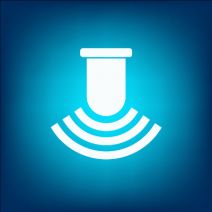 Employees who are addicted to social media is a problem for modern businesses. Despite the professional networking benefits of social media, it can be a major distraction and time-waster. Before you lock down all social media websites on your network, you should first try to understand why humans have such a hard time leaving social media alone.
Employees who are addicted to social media is a problem for modern businesses. Despite the professional networking benefits of social media, it can be a major distraction and time-waster. Before you lock down all social media websites on your network, you should first try to understand why humans have such a hard time leaving social media alone.
For the purposes of this article, let’s take a look at Facebook--easily the largest and most-used social media outlet out there right now. The reasoning behind why people can’t quit Facebook was the subject of a study performed by Cornell University researchers. The results were based on the online experiment called 99 Days of Freedom, which challenges participants to go 99 days without checking Facebook. Sounds like a pretty daunting task, huh?
More specifically, though, the study focused on the surveys completed by those who are participating in 99 Days of Freedom. Surveys designed by Just. Researchers at Leiden University were issued to willing participants at the 33, 66, and 99 day marks, and it yielded some not-so-surprising results.

What was surprising was a significant number of users managed to make it 99 days without checking Facebook, with only a marginal number of users crawling back to their favorite social media site. What’s most interesting about the survey, though, are the trends that they discovered in the survey data that led to users taking back Facebook:
- Self-diagnosed addiction: Some people might feel that Facebook (and social media in general) is addictive. This is usually the case if it’s made into a habit or included in a routine, just like any other addiction. Those who think that Facebook is addictive will naturally feel more of a pull to return to it.
- Privacy: Naturally, users who felt that their Facebook activity was being monitored were less likely to continue using Facebook. This makes sense, considering how some people refuse to use Facebook completely because they don’t want to expose themselves to the Internet. In the office, this works to your advantage, especially if you’re monitoring the web history of your end users.
- Mood: In what appears to be a strange finding, the end user’s mood can affect how often they use Facebook. A good mood helps to keep you off of social media, probably because you’re being entertained and engaged by something else.
- Other Social Media: The study found that users who have more than one social media account, like Twitter, are less drawn toward Facebook. This is likely due to users having somewhere else to go for their social media purposes.
People who were able to give up on Facebook for 99 days saved, on average, 28 hours. That’s a lot of time wasted browsing cat pictures and memes. Of course, something like social media is only bad in large quantities, so the key to limiting your own exposure to it is self-control. Otherwise, you could accidentally throw away countless hours that could be better spent on other things.
While social media is known as a time-waster, this isn’t to say that all social media should be blocked in order to retain productivity in the office; rather, we suggest that you implement a web content filter that’s capable of blocking content on a per-user basis. This way, you can only block social media websites for problem employees, while still allowing access to those who need it to perform their daily duties.
For more information about our web content blocking solution, give Evolve IT a call at (518) 203-2110.

